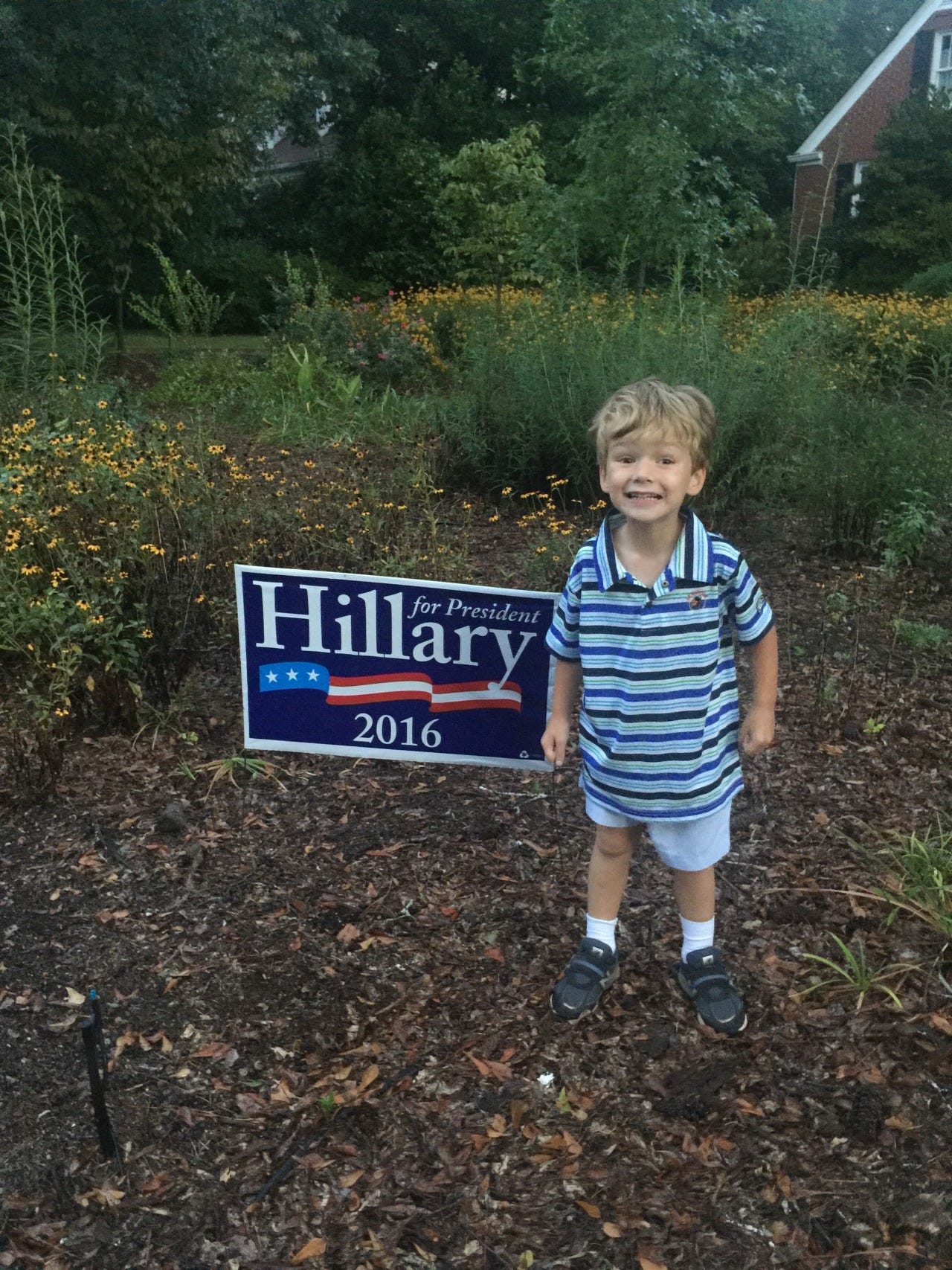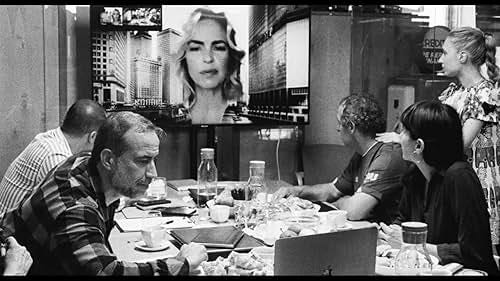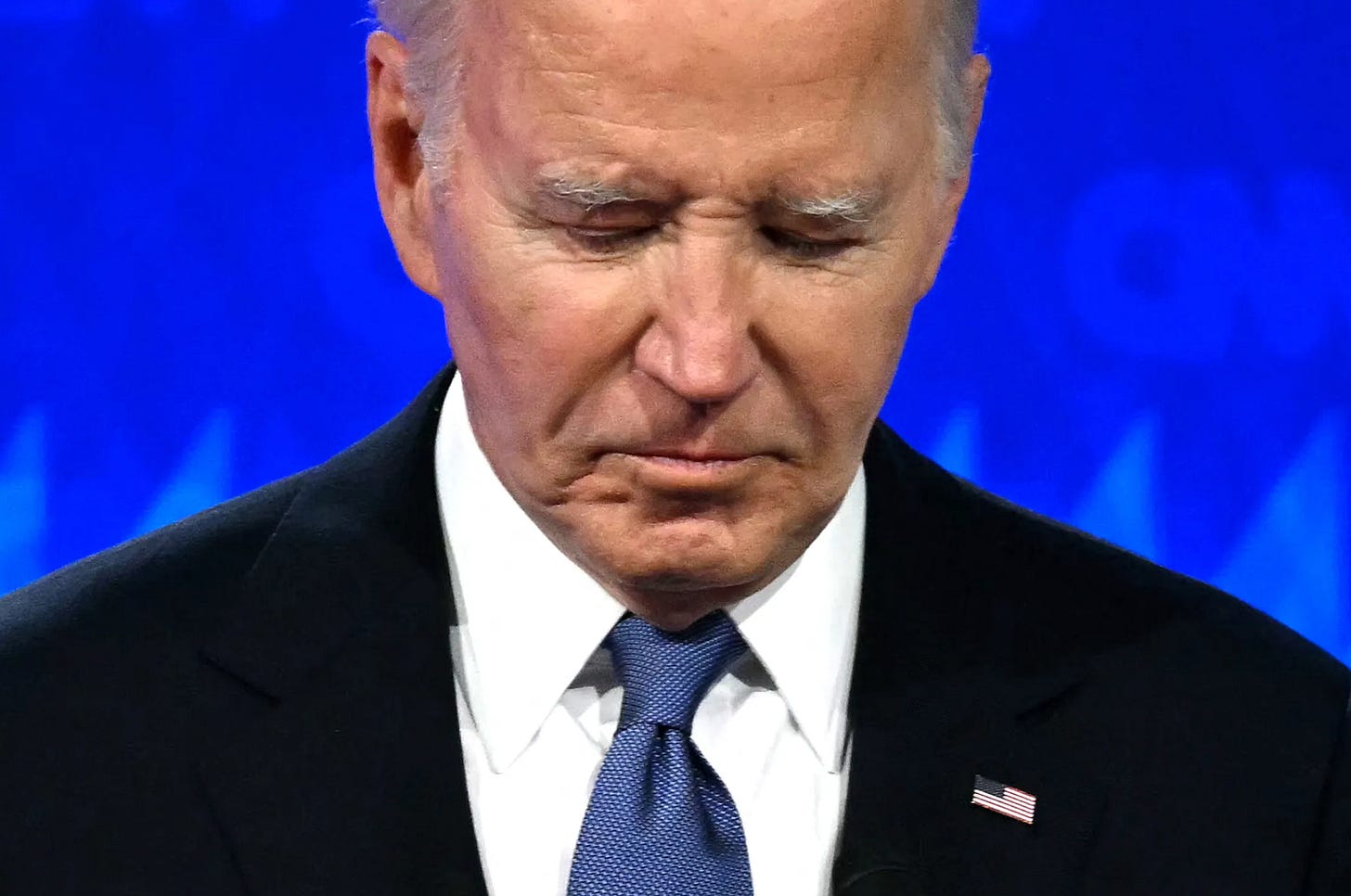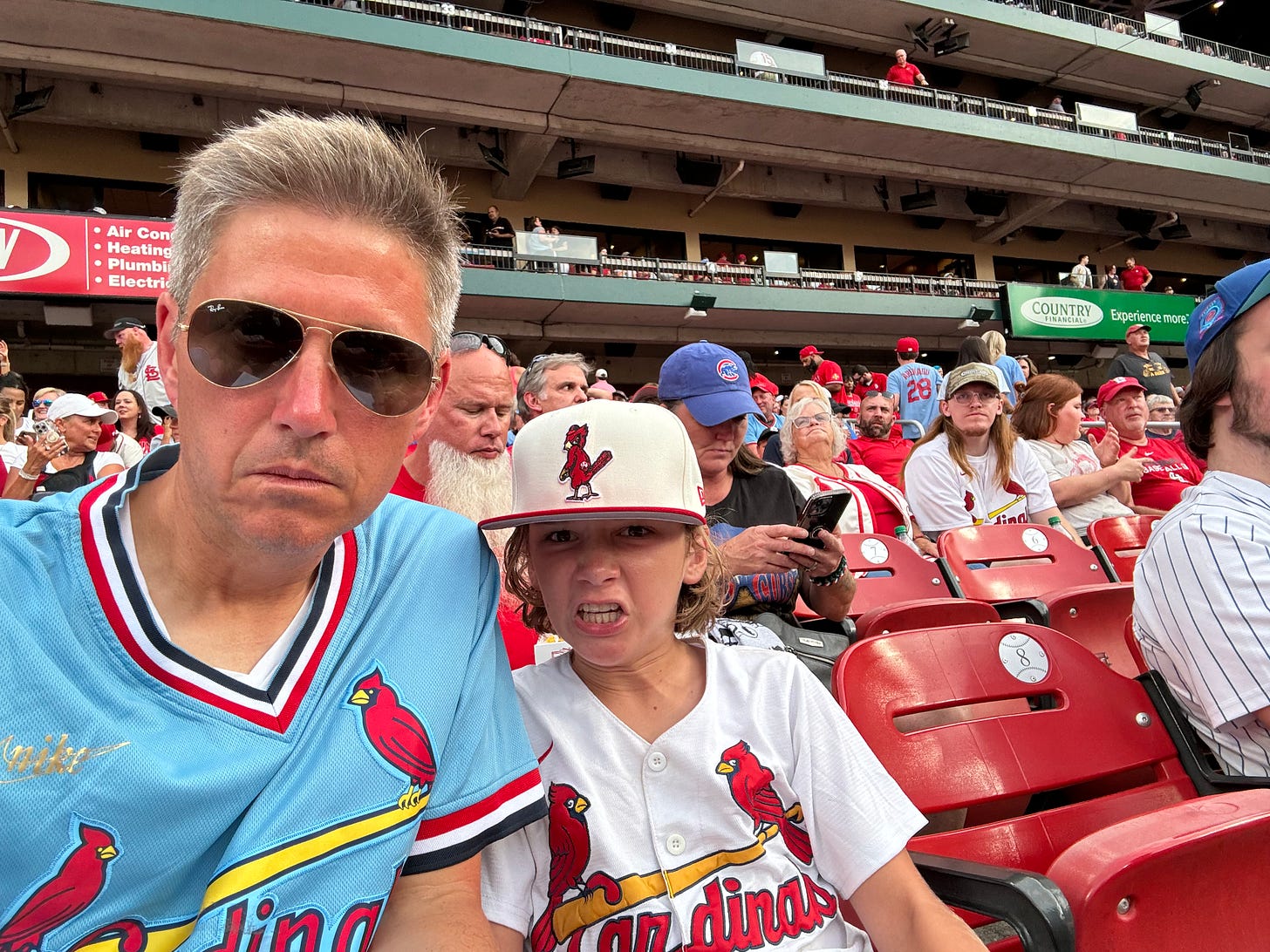Here is a button where you can subscribe to this newsletter now, if you have not previously done so. I do hope that you enjoy it.
(Ed. Note: I promise this will be the last time I write about this for a while.)
This has been one of those weeks in which you struggle to stay optimistic about the world. Optimism has long been a theme, perhaps the central motif, of my work and my career, and if you’ve met me on a personal level, you know it’s a part of walking-around meat-space me as well. Optimism gets a bum rap these days, portrayed either as either being a cheerful doofus or someone who lives with permanent privileged blinders on, a person who thinks because things have worked out for them, the only reason they don’t work out for others is because of their persistent negative attitude. But I’ve long argued that optimism isn’t just a choice—it’s the intelligent, reasonable one. None of us have nearly as much control over what’s going to happen as we wish or believe we do; something is going to happen, or it isn’t, and the universe decides it far more than we decide it. So you can either spend your life terrified (or even convinced) that a piano is going to fall on your head, or you can walk around believing that one never will. Neither approach is going to prepare you for the piano. But one of them will at least allow you to enjoy the time you have until it does.
I’ve written about this before in reference to the film Melancholia, in which a woman, played by Kirsten Dunst, who has spent her whole life believing the world is coming to an end finds herself calmed and reassured when it turns out that it is, in fact, ending. Her sister, played by Charlotte Gainsbourg, who has lived a less depressive, more fulfilling life, handles the coming armageddon with palpable panic, with the message being, essentially, “people who walk around scared and sad are the only people who are being honest about how all this ends.” I will confess that I do not understand this. Yes, Gainsbourg is more scared when the world ends than Dunst is. But on the whole: She spent a lot less of her life terrified than her sister. You don’t get any bonus points for being right when bad things happen. You just get the bad things and all the time you spent fretting about them. Yes, I also know the world is hard and dangerous and all this ends in death. If it’s OK, I’m going to go ahead and hope for the best until then anyway. What else can any of us do?
But, even I have to admit, it has been more difficult over the last few weeks, that creeping sense that there’s a train at the end of the tunnel, a train we can all see coming, and, for a wide variety of disparate and short-sighted reasons, none of us seems capable of getting out of its way. And some of the optimism I see, such as it is, seems less like hopefulness and more like willful delusion: A refusal to see reality as it is, a purposeful denial of one’s ability to evoke change. It is one thing to believe things will all turn out OK; it’s quite another to have such blind faith in it that you actively avoid opportunities to try to work to try to make it that way. It’s like the old joke about the boxer who asks the preacher to pray for him before a big fight. “I’ll do what I can,” the preacher says, “but if you can punch, it’ll help.”
I am no more eager to talk about the Presidential race than any of you are, but despite my attempts to hide from it by floating around a lake all week, its urgency is increasingly undeniable. I explained my general view on all this last week—basically, I think Joe Biden is a good man and a good President but no one, myself included, will ever be able to unsee that debate and therefore he should drop out of the race—but I don’t have anything new to add that you didn’t already get from George Clooney. I’m instead more interested in the way the Biden campaign has handled the last week. They are, for all intents and purposes, closing ranks, sticking their heads in the sand and just make-believing that everything’s going to be OK. They are allowing optimism to stand in for reason.
Here’s a telling line from a great piece this morning from my colleague Gabriel Debenedetti at New York:
Optimism is a choice, but it has to be an earned choice. My optimism, I believe, is not a denial of the world but an acceptance of it—of my lack of control over it and also my personal autonomy, how I can not change the world in the macro but I can do everything I can to improve it in the micro. This is what people get wrong about optimism: It’s not stupid faith, it’s informed hope. What has been hard about this week is seeing people I generally agree with, people I very much admire, put their heads in the sand, to respond to the approaching abyss with a stubborn insistence that, no, everything is fine. When it’s not.
Look: I’ve got 538 bookmarked and check it several times a day, perhaps even a bit obsessively. It is currently more optimistic than even I am.
So: I could be very wrong about all of it. I am claiming no special or specific expertise here. I’m reading the vibes (and, uh, the polls) just like everybody else is. But I’m concerned. I don’t know how any reasonable person, with eyes wide open, could not be.
Which means, it occurred to me this week, that this November, I’m likely to do something I’ve never done before in my adult voting life: I’m likely to vote for a Presidential candidate I think is going to lose.
Perhaps this is what true blinkered dumb optimism is: Forever thinking that the person I want to win is going to win. But it has been the case every time I have voted in a Presidential election. Unsurprisingly, I have been wrong three times.
The first year I was old enough to vote was 1996. (I turned 17 just before Bill Clinton’s win in 1992.) Everyone thought Clinton would beat Dole, and he did. In 2000 I thought Al Gore would beat that oddly dim Presidential offspring fellow from Texas, and I went to sleep that night thinking he had before awakening to a very different reality. That’s the first time.
In 2004, it is now widely forgotten that the general consensus leading up to Election Day, and definitely throughout Election Day, was that John Kerry was going to beat President George W. Bush. Did anyone else spend all that day checking exit polls? If you did, you were certain Kerry was going to win. This was so widespread throughout the day that stocks actually fell in anticipation of a Kerry win.
Kerry did not in fact win. So there’s the second time.
In 2008 and 2012, I believed Barack Obama was going to win, and he did. I watched the returns in 2008 at my apartment in Brooklyn, something that, I swear, actually made the news.
I believed Hillary Clinton was going to win in 2016. Uh, that was the third time.
And then, in 2020, I voted for Joe Biden, fully confident he would win. Eventually, he did. Now, there are some ugly primary votes in my past that didn’t turn out—you are reading the words of someone who once voted for John Edwards, which is probably reason enough for you to unsubscribe right here and now—but those are all my Presidential votes. I have voted for the Democratic candidate in each election, sometimes more enthusiastically (2008, 2016, 2020) than others (1996, 2000). If Joe Biden remains the nominee, I will vote for him. If you are thinking of doing otherwise, I recommend you watch the Republican Convention this week; I can’t think of a better way to drum up energy for a Democratic candidate than watching that syncophantic shitshow. I will vote for Joe Biden.
But for the first time in my life, I will do so believing that the Presidential candidate I am voting for is going to lose. That may not be optimistic. But it’s not hiding one’s head in the sand either. The good news is that I’m often wrong. But that’s not a very fun thing to be optimistic about.
Here is a numerical breakdown of all the things I wrote this week, in order of what I believe to be their quality.
The Knicks Have All the Pieces to Win, New York. It’s not cost-efficient for me to get season tickets for the Knicks, but know that I want to.
This Week’s Five Fascinations, MLB.com. An All-Star special, with some Charlie Condon love.
Ranking Home Run Derby Participants, MLB.com. Only one former Cardinal this year.
Potential First-Time All-Stars, MLB.com. Well, some of these guys made it.
This Week’s Power Rankings, MLB.com. Don’t you wish your team was in the playoff chase right now?
PODCASTS
Grierson & Leitch, we gave our best movies of the first half of the year and also discussed “Beverly Hills Cop: Axel F.”
Seeing Red, Bernie and I are back.
Morning Lineup, I didn’t do a show this week.
LONG STORY YOU SHOULD READ THIS MORNING … OF THE WEEK
“Democrats Are Making a Terrible Mistake,” Jonathan Chait, New York. I’ll just let this Chait piece—as well as this excellent Brian Beutler piece, which compares the current situation to what John McCain faced right before he picked Sarah Palin in 2008—essentially echo my thoughts on the current state. I promise not to talk about this stuff next week. Promise.
ONGOING LETTER-WRITING PROJECT!
This is your reminder that if you write me a letter and put it in the mail, I will respond to it with a letter of my own, and send that letter right to you! It really happens! Hundreds of satisfied customers! (I’m sorry I’m so behind on these.)
Write me at:
Will Leitch
P.O. Box 48
Athens GA 30603
CURRENTLY LISTENING TO
“Naked Ground,” The Dexateens. Every once in a while I forget how awesome (and sadly unknown) The Dexateens are. Here’s a reminder.
Remember to listen to The Official Will Leitch Newsletter Spotify Playlist, featuring every song ever mentioned in this section.
Also, now there is an Official The Time Has Come Spotify Playlist.
It’s also possible I’m only down right now because I watched the Cardinals lose to the Cubs last night. That’ll make anyone feel like the world’s ending.
We’ll be back out there for the doubleheader today. Optimism is a choice.
Best,
Will











Thanks for posting the Dexateens song!
It's really good!
I'm going to check them out!
This year I can watch the Knicks in two different LA arenas!